Filter by
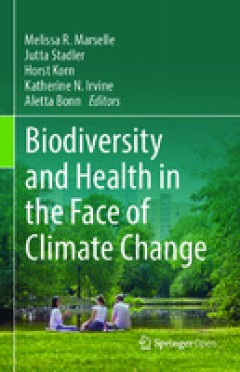
Biodiversity and Health in the Face of Climate Change
This open access book identifies and discusses biodiversity’s contribution to physical, mental and spiritual health and wellbeing. Furthermore, the book identifies the implications of this relationship for nature conservation, public health, landscape architecture and urban planning – and considers the opportunities of nature-based solutions for climate change adaptation. This transdiscipli…
- Edition
- -
- ISBN/ISSN
- -
- Collation
- 481
- Series Title
- -
- Call Number
- -
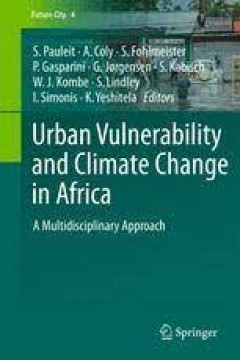
Urban Vulnerability and Climate Change in Africa A Multidisciplinary Approach
Urbanisation and climate change are among the major challenges for sustainable development in Africa. The overall aim of this book is to present innovative approaches to vulnerability analysis and for enhancing the resilience of African cities against climate change-induced risks. Locally adapted IPCC climate change scenarios, which also consider possible changes in urban population, have been …
- Edition
- -
- ISBN/ISSN
- 978-3-319-03982-4
- Collation
- -
- Series Title
- -
- Call Number
- -
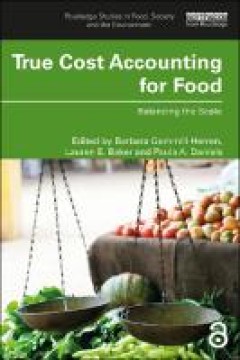
True Cost Accounting for Food: Balancing the Scale
This book explains how True Cost Accounting is an effective tool we can use to address the pervasive imbalance in our food system. Calls are coming from all quarters that the food system is broken and needs a radical transformation. A system that feeds many yet continues to create both extreme hunger and diet-related diseases, and one which has significant environmental impacts, is not serving …
- Edition
- Ed. 1
- ISBN/ISSN
- 9781000389968, 9780367506858
- Collation
- 288
- Series Title
- Routledge Studies in Food, Society and the Environment
- Call Number
- 338.1 TRU t
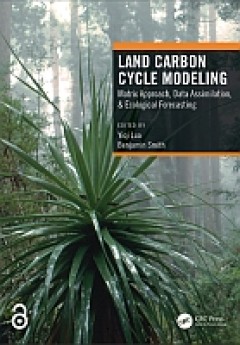
Land Carbon Cycle Modeling: Matrix Approach, Data Assimilation, & Ecological …
Carbon moves through the atmosphere, through the oceans, onto land, and into ecosystems. This cycling has a large effect on climate – changing geographic patterns of rainfall and the frequency of extreme weather – and is altered as the use of fossil fuels adds carbon to the cycle. The dynamics of this global carbon cycling are largely predicted over broad spatial scales and long periods of …
- Edition
- Ed. 1
- ISBN/ISSN
- 9781498737029, 9780429155659
- Collation
- 398
- Series Title
- -
- Call Number
- 574 LAN l
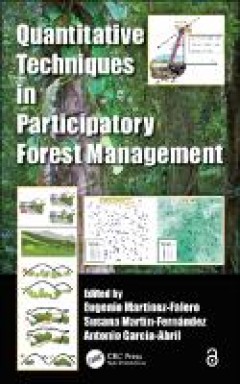
Quantitative Techniques in Participatory Forest Management
Forest management has evolved from a mercantilist view to a multi-functional one that integrates economic, social, and ecological aspects. However, the issue of sustainability is not yet resolved. Quantitative Techniques in Participatory Forest Management brings together global research in three areas of application: inventory of the forest variables that determine the main environmental indice…
- Edition
- -
- ISBN/ISSN
- -
- Collation
- -
- Series Title
- -
- Call Number
- -
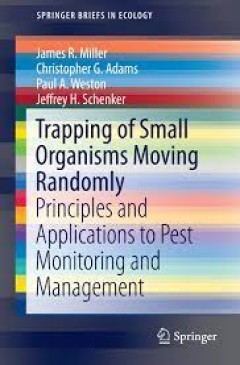
Trapping of Small Organisms Moving Randomly Principles and Applications to P…
This new book is the first to make logical and important connections between trapping and foraging ecology. It develops and describes—both verbally and mathematically--the underlying principles that determine and define trap-organism interactions. More important, it goes on to explain and illustrate how these principles and relationships can be used to estimate absolute population densities i…
- Edition
- -
- ISBN/ISSN
- 978-3-319-12994-5
- Collation
- -
- Series Title
- -
- Call Number
- -
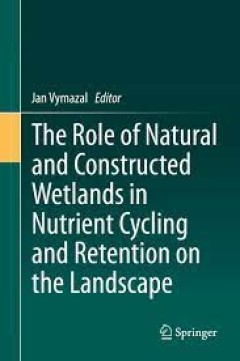
The Role of Natural and Constructed Wetlands in Nutrient Cycling and Retentio…
Natural and constructed wetlands play a very important role on the landscape and their ecological services are highly valuable. In fact, some wetland types are regarded as one of the most valuable ecosystems on the Earth. Water management, including flood water retention, biomass production, carbon sequestration, wastewater treatment and biodiversity sources, are among the most important ecolog…
- Edition
- -
- ISBN/ISSN
- 978-3-319-08177-9
- Collation
- -
- Series Title
- -
- Call Number
- -
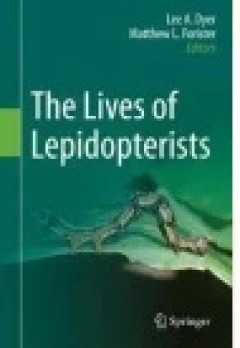
The Lives of Lepidopterists
The people that study these animals are lepidopterists, and the goal of this book is to introduce them with their own words. In twenty chapters, lepidopterists tell their stories, and these tales mirror the diversity of nature in their range and depth. You will find individuals that wrestle with the challenges of scientific careers, stories of far flung travel sand close calls, and historical p…
- Edition
- -
- ISBN/ISSN
- 978-3-319-20457-4
- Collation
- XIX, 273
- Series Title
- -
- Call Number
- -
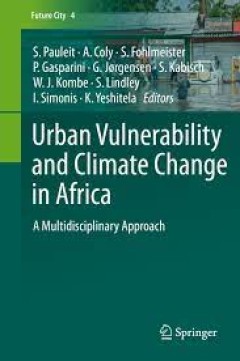
Urban Vulnerability and Climate Change in Africa A Multidisciplinary Approach
Urbanisation and climate change are among the major challenges for sustainable development in Africa. The overall aim of this book is to present innovative approaches to vulnerability analysis and for enhancing the resilience of African cities against climate change-induced risks. Locally adapted IPCC climate change scenarios, which also consider possible changes in urban population, have been …
- Edition
- -
- ISBN/ISSN
- 978-3-319-03982-4
- Collation
- 16 b/w illustrations, 115 illustrations in colour
- Series Title
- -
- Call Number
- -
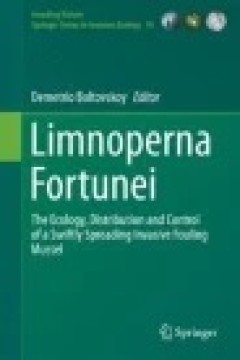
Limnoperna Fortunei: The Ecology, Distribution and Control of a Swiftly Sprea…
This book summarizes all currently available information on the ecology, environmental impacts and control methods of the golden mussel in industrial plants. The golden mussel was introduced in Hong Kong, Taiwan, Japan, and South America between 1965 and 1990, swiftly spreading in freshwater waterbodies. In most areas invaded it has become the dominant macroinverebrate and a major fouling pest …
- Edition
- -
- ISBN/ISSN
- 978-3-319-13494-9
- Collation
- -
- Series Title
- -
- Call Number
- -
 Computer Science, Information & General Works
Computer Science, Information & General Works  Philosophy & Psychology
Philosophy & Psychology  Religion
Religion  Social Sciences
Social Sciences  Language
Language  Pure Science
Pure Science  Applied Sciences
Applied Sciences  Art & Recreation
Art & Recreation  Literature
Literature  History & Geography
History & Geography